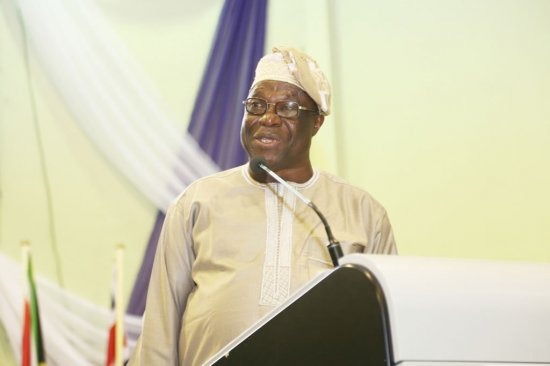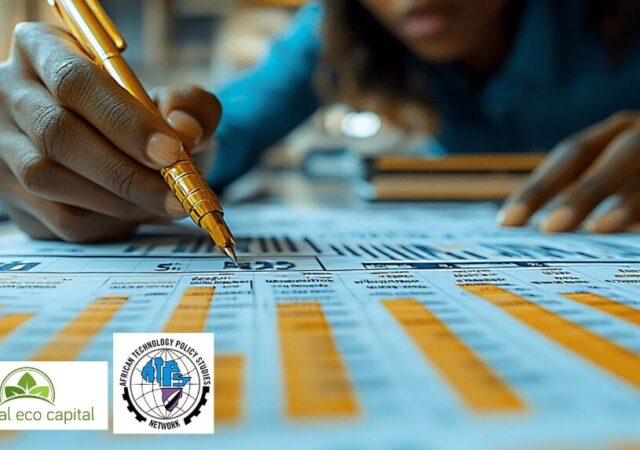Despite being surrounded by water, Lagos State still has a major challenge providing safe potable water. So much so that the populace have turned the drilling of boreholes into a norm for water access. But that norm is gradually becoming an avenue for groundwater pollution.
Against the backdrop of the 2022 World Water Day, Engr. Muminu Badmus, Chief Executive of The Lagos Water Corporation touches on impact areas regarding water availability and groundwater pollution.
Excerpts:
EAM: With the world water day 2022 focused on Groundwater, what’s your take on the impact of groundwater on water access in Lagos State?
MB: When talking about Groundwater, especially in Lagos, you can’t separate inclusion of the populace in that discourse. One of the challenges that has remained constant is the ever increasing large population. So, with that comes lots of solid waste and even waste water. And where do all these go? Into the ground water. Anytime it rains, the water table rises and then there is pollution. And it’s this same groundwater we use as the source of our drinking water with boreholes everywhere. We then find with all these waste, pollution occurs. Lagos alone generates about 15,000mt of waste and 350million gallons of waste water daily.
Everybody uses groundwater as a source of drinking water. We all believe that it is pure and really, it’s supposed to be pure.
We then have the septic tanks or as we call them in Nigeria, suckaways. In most places, they are not properly located. They are very close to each other, the Borehole and the septic tanks, sometimes wrongly situated and close to Wells and boreholes. And then we extract water from that Borehole. And there is already pollution as a result of the closeness of these two systems and at the same time, most people extract from that borehole for drinking water not realizing they might be drinking polluted water.
Our attitude to the environment, especially by industrial operators is quite nonchalant and sometimes, deliberately destructive. They create a lot of waste which is not properly protected. People do not have regard for regulations with the necessary policing quite difficult as the monitoring teams are heavily overwhelmed by too many conflicts to resolve.
Also, you have storm water that goes around and carries this waste into the river. Now the population are depending on the water; but the river is polluted, therefore people are forced to drill bore holes. Unfortunately the borehole is not sufficient because you have more people that are now pumping from that borehole.
The government needs to have a very strong regulatory framework that people would need to adhere to. Alongside all these, our rivers and groundwater need to be well regulated and protected, especially from effluent discharges and poured out toxic waste so we can have less pollution of groundwater.
EAM: From your vantage point, what is being done to mitigate and even prevent groundwater pollution?
MB: I emphasize that we need to have very good regulations in place; a very good regulatory commission that goes around and makes sure that every regulation is adhered to. In Lagos, we have the Lagos State Environmental Protection Agency (LASEPA) to make sure that all these industrial facilities really adapt to the law and the regulations; because if we are not doing that, we need to put more people to police those facilities. For instance, almost every house has both boreholes and suckaways. There are people who have abandoned boreholes that were not properly commissioned. When we now have rainstorms, you will notice there are some that get as high as people’s knees, meaning they would have covered the boreholes that were not properly commissioned. You also have some people pumping sewage into the stream. So that water, called combined sewer, is already contaminated water. And when it rains, it rises, goes into those abandoned boreholes that are not properly decommissioned. From there it goes down and pollutes the aquifer where almost everybody in Lagos is pumping water from to drink. That is a source of pollution. And of course it’s also the source of our groundwater.
So it can be better if we have the regulation in place, and if the individuals that are drilling boreholes actually get a permit and proper inspection by the state government or local government is done before they drill their boreholes. They can look at the proximity and insist on the correct distance between a borehole and a suckaway based on the regulations.
Incidentally, my initial exposure was more geared towards a centralized sewage system with collection points and treatment plants. Sewage is treated; storm-water also is collected and treated, not just going into a water body. They are mostly treated at locations where we believe they have been polluted; where the domestic sewage and storm-water waste are mixed, that’s what we call combined sewer areas. And those waste that are not combined sewer are allowed to go into the storm-water water works, they screened, solids are removed and then dumped into the river. Whereas those in areas where they believe is combined sewage; they are collected and treated. At no time are they allowed to mix or dumped them into the sewage system.
 EAM: With quite a lot of organizations at the federal, state and local level seemingly having the same functions, won’t this cause conflicts in execution and enforcement?
EAM: With quite a lot of organizations at the federal, state and local level seemingly having the same functions, won’t this cause conflicts in execution and enforcement?
MB: This can be mitigated between the state and the local government without any problem whereby every agency has their own responsibilities. A line will be drawn; which is federal, state and local government. However, what we really need is enforcement. That is what is really lacking. Because if you have regulation and it’s not enforced, then it’s like you don’t have anything at all. And that is why we have all these issues that we are talking about. In Washington, where I worked, I have seen areas where groundwater flows out and the water is as pure as can be, even when it goes into the gutters. But here it’s a different story altogether. Immediately the water hits the ground, it’s already polluted. So I think the government needs to do a lot of things there. The state and the local government need to come together and put in regulations which will guide both state and local government and then strengthen the enforcement people.

EAM: When advocating licensing and permits for boreholes, is it not a tacit admission of failure to provide a centralized water piping system by the water board, that’s making people opt to drill boreholes?
MB: I am not for boreholes. I do not encourage boreholes and I will not encourage boreholes. It is the responsibility of the government to make sure that potable clean drinking water clean is provided to every household. Yes, I agree with you on the necessity of a centralized water piping system. Make sure that every house gets water. People will look for water wherever they can get it. And that is why people are turning into drilling boreholes. Some boreholes are drilled even on the site of abandoned old landfills or quite close to them. Can you imagine that? Unfortunately, most if not all of our landfills are torn with leachates so all the water that is going there is already contaminated.
(The liquid formed when water filters through waste placed in landfill, either from improperly drained waste or rainwater. When it comes into contact with surface or buried waste, it leaches or draws out chemicals or constituents from those wastes and can contaminate groundwater, surface water and soil. Such liquid is called a leachate)
The full interview shall be in our digital issue. Click here to receive a copy once published.








I don’t think the title of your article matches the content lol. Just kidding, mainly because I had some doubts after reading the article.
I don’t think the title of your article matches the content lol. Just kidding, mainly because I had some doubts after reading the article.